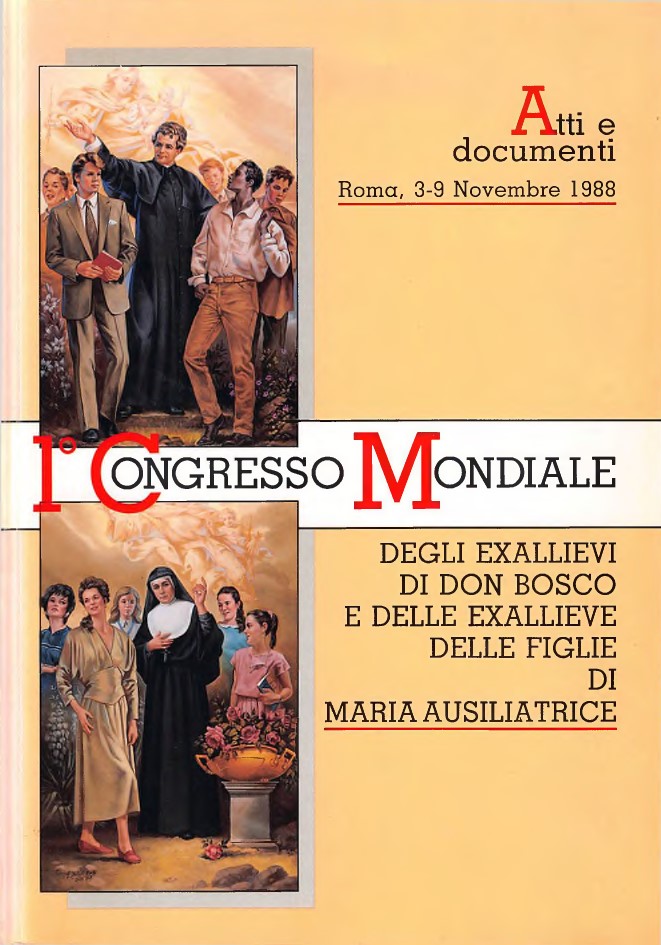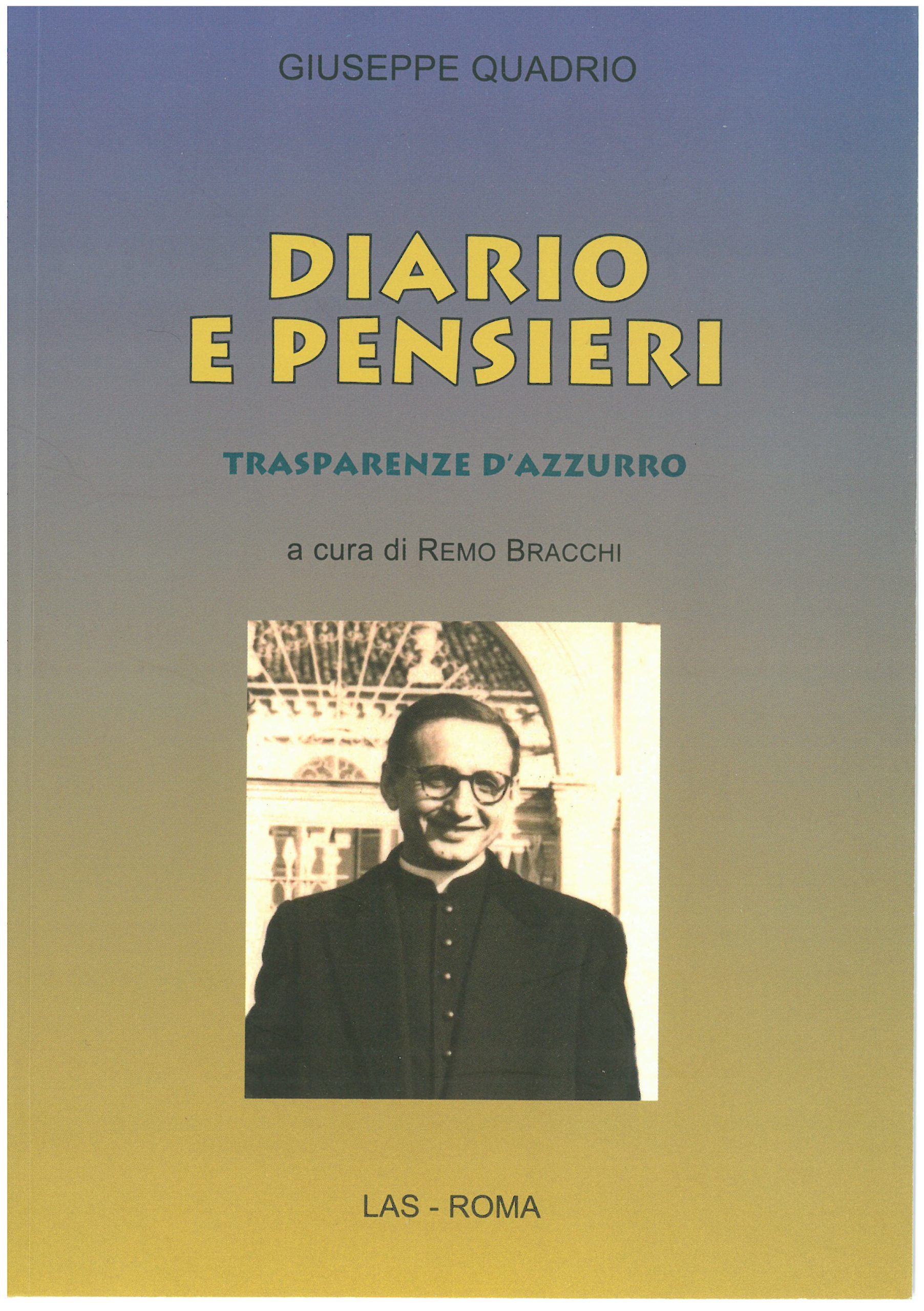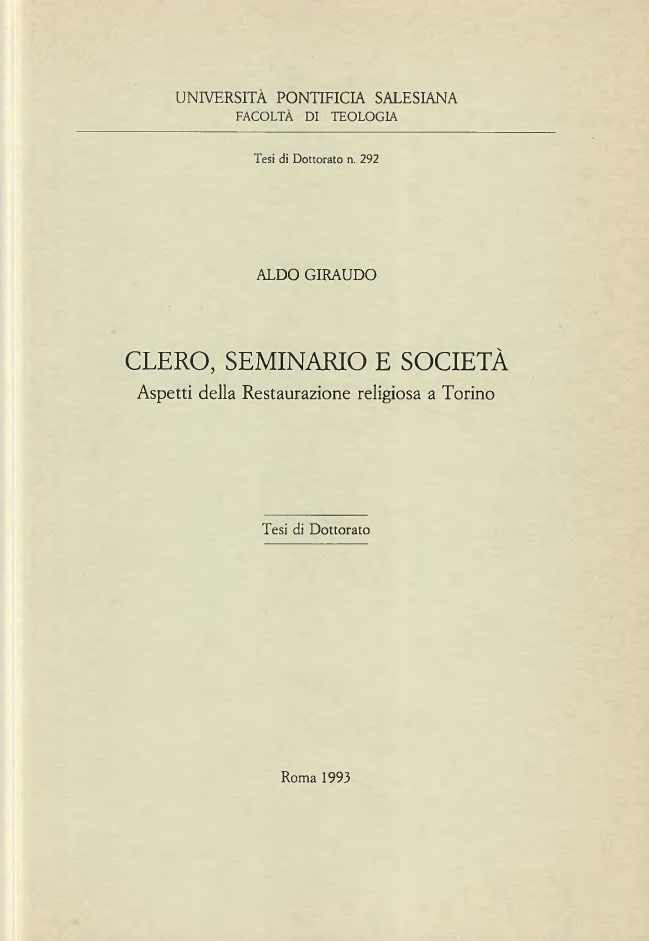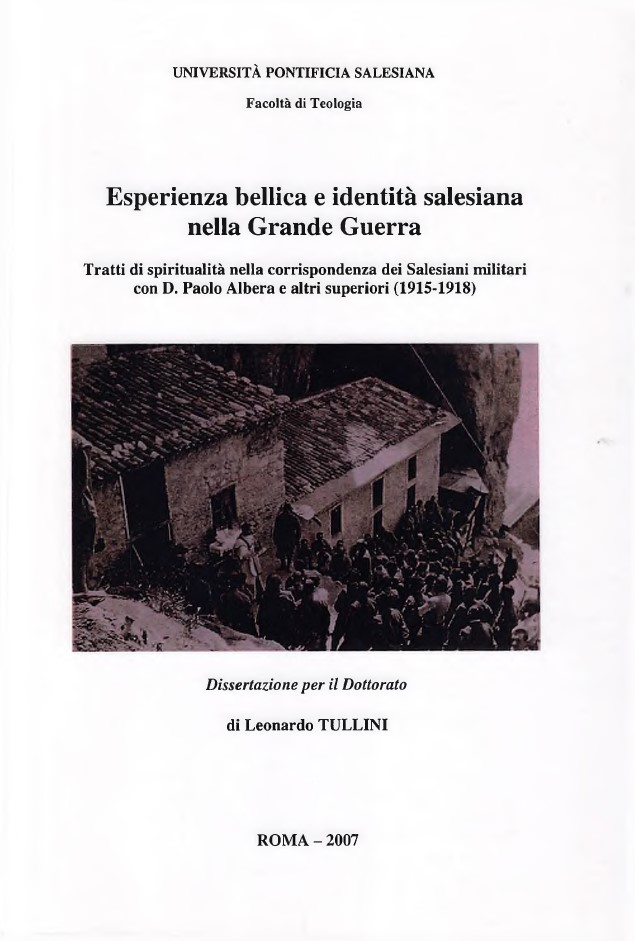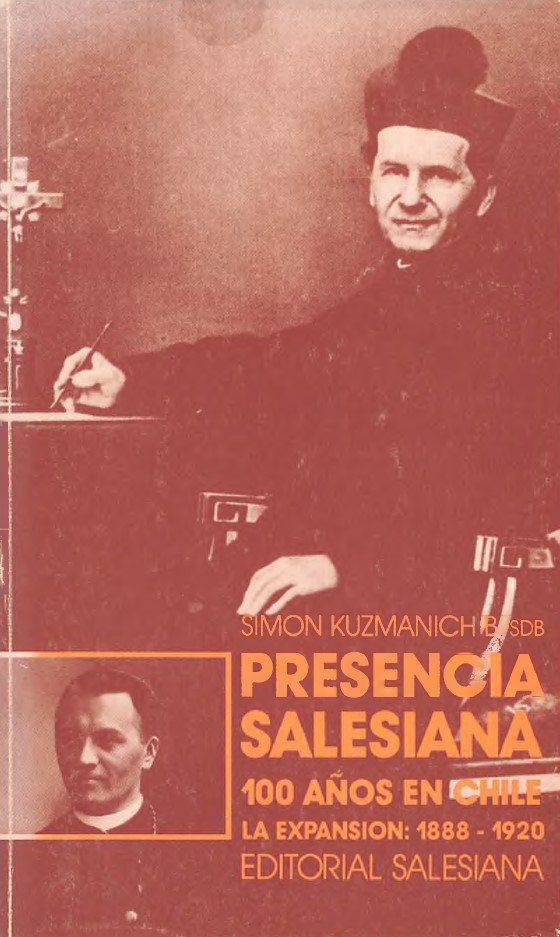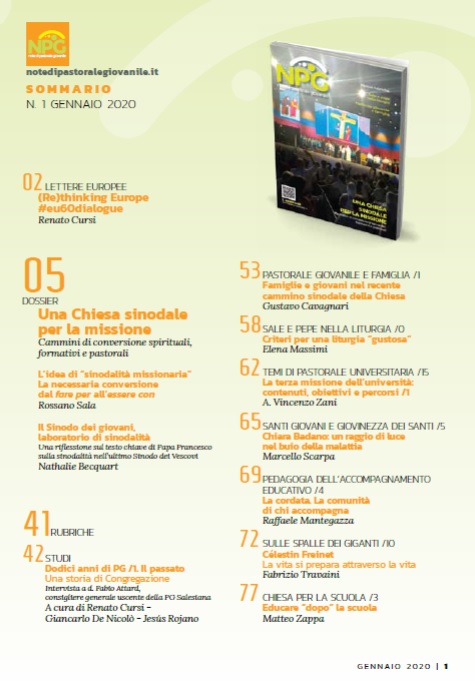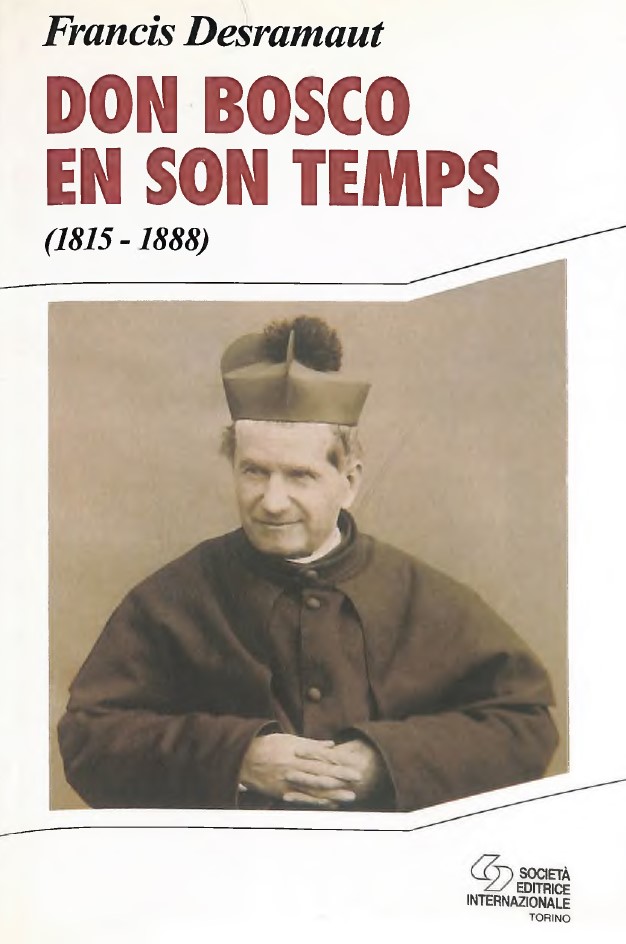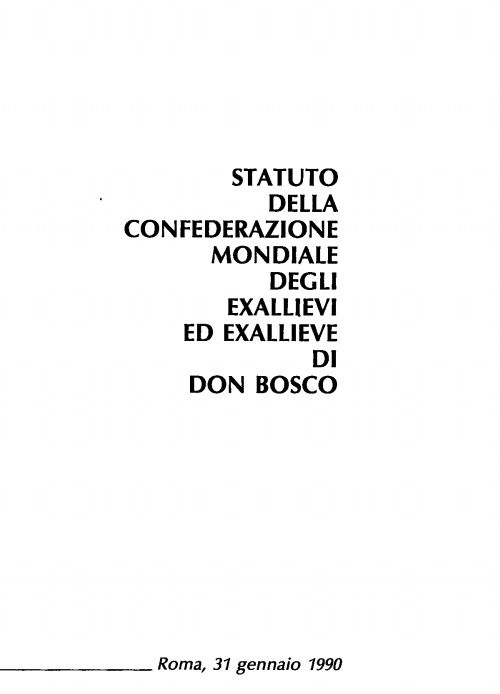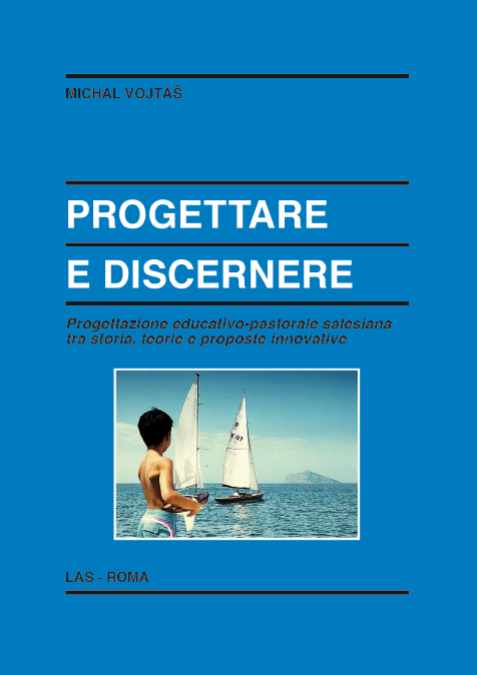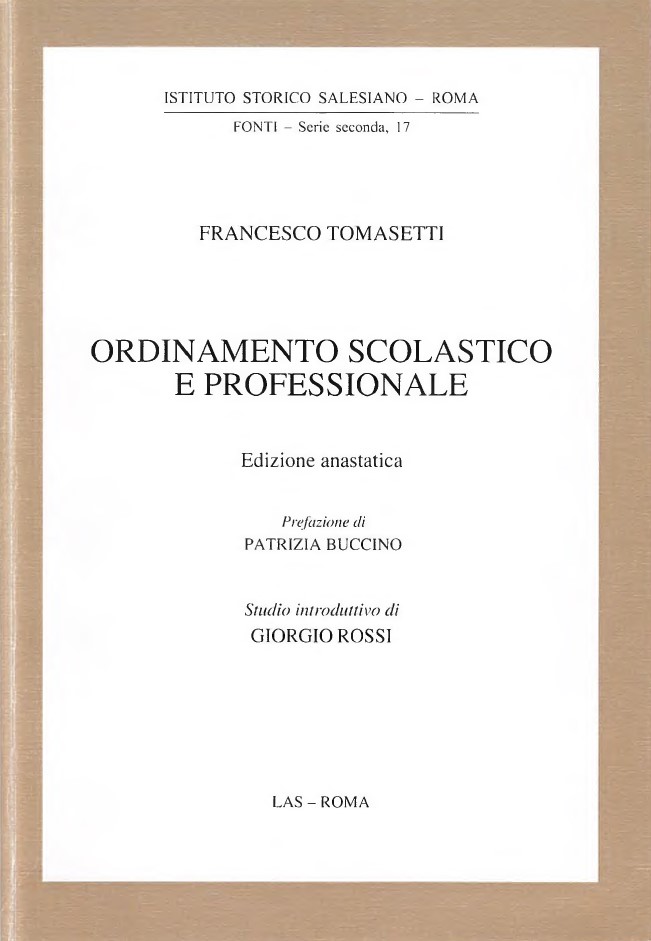Nel centenario della morte di Don Bosco, le Confederazioni Mondiali degli exallievi ed exallieve di don Bosco e delle Figlie di Maria Ausiliatrice si impegnano a “camminare insieme”. Il Congresso del 1988 ha aperto prospettive promettenti, e gli Atti del Congresso illuminano questo percorso. La pubblicazione degli Atti rappresenta l’impegno delle Confederazioni a realizzare le finalità e gli orientamenti programmatici espressi. Continue reading “Autori Vari – Primo congresso mondiale degli exallievi ed exallieve di Don Bosco e delle Figlie di Maria Ausiliatrice: Atti e documenti, Roma 3-9 novembre 1988”
